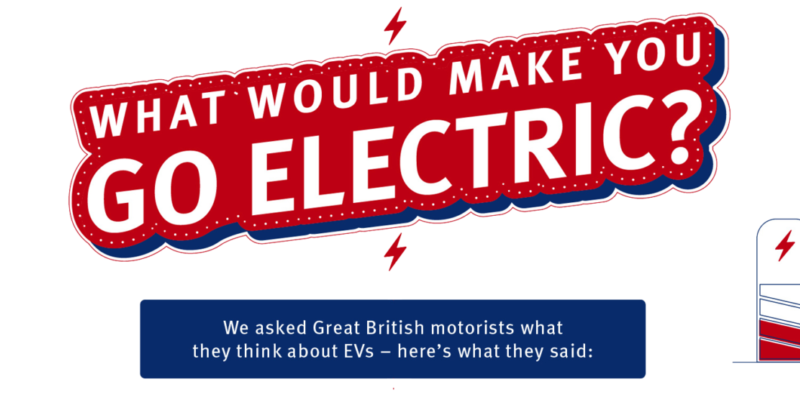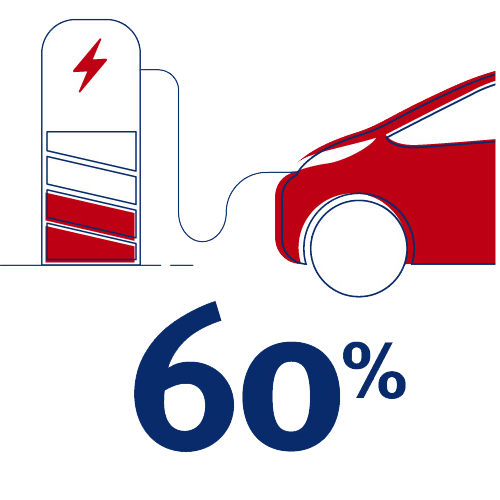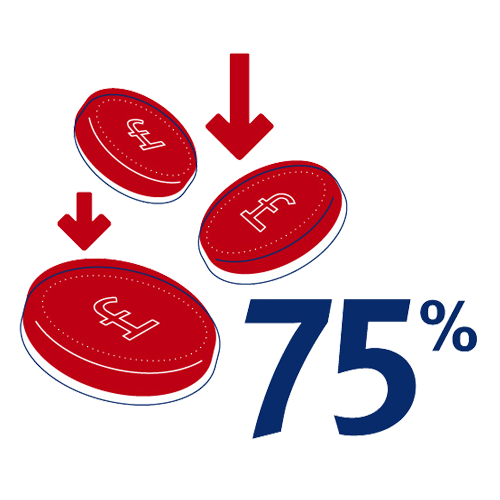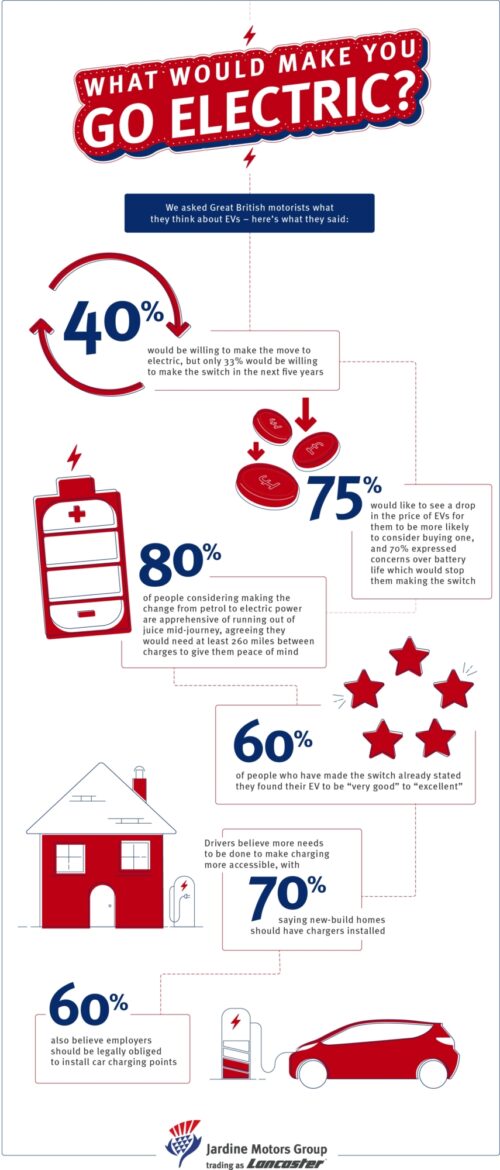
Electric vehicles (EVs) and their plug-in hybrid counterparts have been on the rise on UK’s roads in the past few years, with over 40,000* sold in the first quarter of 2019. That is an almost 15 per cent rise* compared to the same period last year.
However, data from our recent survey highlights that 60 per cent of UK motorists still need convincing when it comes to going electric.
As the popularity of EVs grow, we decided to capture the current feelings of the British public on the electric car movement and gauge their opinion on what would make them go electric. Through our research, we were able to uncover some interesting facts (and stubborn stigmas!) - most notably that just 15 per cent are looking to make the switch in the next year. With many myths and rumours circulating around electric vehicles, it is important that motorists get the full facts before dismissing the idea of switching to an EV.
View the range of used electric cars and used hybrid cars available at Jardine Motors.
6 EV Hang Ups
We are keen to uncover the common concerns or barriers behind motorists making the switch to an EV, in order to present the full facts and help customers make an informed decision. Here we address the main dilemmas drivers are facing over being more likely to go electric.
1. Battery Life of EVs

Our research highlighted that 80 per cent of people considering making the switch are apprehensive of running out of charge mid-journey, agreeing that they would need at least 260 miles between charges to give them peace of mind. To put that in perspective, that is the equivalent of making a round trip from London to Birmingham.
Realistically, with a growing network of accessible charge points being added every day across the UK, and over 13,000 points found up and down the country, drivers don’t need to worry. The growing charging infrastructure will keep drivers juiced up from A to B and onwards to C and D much like a petrol station, thanks to rapid chargers.
Still, ‘range anxiety’ is real and manufacturers are doing more to address these concerns. Brands are dedicated to increasing the range of EV models in what is being referred to as the ‘next generation’ of EVs, with manufacturers like MINI, Jaguar and Audi set to release new electric vehicles to the market.
2. Accessible Charging Points

On ‘the go’ charging
Drivers feel more needs to be done to make the process of charging an electric car equally, if not more, accessible as filling up a tank of fuel.
As we have covered, public charging points are readily available as part of your journey. Some EVs conveniently come with an inbuilt sat nav capable of alerting you to your next suitable charging station. Alternatively, innovations such as ZapMap can also do just that, giving drivers one less thing to worry about.
At home charging
Seven in 10 said all new build homes should have charging points, with more than half agreeing that new homes with a driveway should have car charging points installed by law. Watch this space on that one, as a government proposal is set to make headway in the fight to cut emissions.
For existing homes, electric vehicles users can already apply for government funding to install a charging point, while some car manufacturers supply you with a fast-charging point as standard.
At work charging
Similarly, 60 per cent also believe their employer should offer them charging facilities at work, in order to take the stress out of the every day.
For more information on charging your EV, read our helpful Guide to Electric Charging Points.
3. Slow off the Mark
Taking too long to charge the vehicle was a deterrent for two-thirds of those polled, and more than a quarter believe electric cars are slower than their petrol or diesel counterparts.
This could just be a misconception though: Alex Brown, Head of Digital Marketing & Transformation at Jardine Motors Group, suggests “the belief that electric powered cars are slower than their petrol are diesel counterparts is an example of the public’s lack of knowledge around how they work. It is true that EVs have a lower top speed, but they accelerate much quicker, effectively making them quicker in most real-world driving situations.”
Read more about EV performance and the latest EV technologies.

4. Price Point of EVs
Research also highlighted that cost may stop people making the switch, with 75 per cent of people stating they would like to see a drop in price of EVs for them to consider buying one.
However, driving an electric vehicle saves you money in many ways - being exempt from paying any road tax or congestion charges in London, as well as discounted or free parking. Still, it is clear that the initial investment in an electric vehicle is more expensive than buying a petrol or diesel car, but once you have made the transition they have reasonably low running costs. You can also reduce the initial investment by buying a second hand electric vehicle. And if you’re looking for a new company car, an EV might be an effective budget-saving option too.

5. Environmental Benefits
Despite electric vehicles estimated to emit 50 per cent less greenhouse gas than diesel, just seven per cent of motorists have already made the switch.
Driving awareness to the positive environmental impact of EVs is key to encouraging the switch to electric. Many car brands are already making commitments to be greener, by expanding their electric car offering in ranges. Coupled with the government’s clean growth strategy (committing to end the sale of conventional petrol and diesel cars and vans by 2040), the demand for wholly electric and zero emission cars is only going to grow.
6. Try Before You Buy
Our research also found two fifths of motorists are friends with another driver who is the proud owner of an electric vehicle. With six in 10 of these fellow car owners rating their electric motor “very good” to “excellent”, it’s no surprise nearly half wouldn’t buy one unless someone they knew had one first, giving them first-hand experience. Alternatively, you can visit your local Jardine dealership, browse our EV range and even have a test drive!
The Verdict: Busting the UK EV Phobia
While 40% would be willing to make the move to electric, only 33% would be willing to make the switch in the next five years.
On completing the research, Alex said: “We wanted to explore what would make people become more inclined to making the switch to EV, but also understand what the barriers are and if there are any major changes that could be made, to the infrastructure for example, to make people more likely to buy an EV.”
We hope our range of EV articles are helpful to motorists looking to clear up any pre-conceived ideas and ultimately weigh up their suitability to going electric. At a time when the UK and car manufacturers are turning an exciting corner in the EV journey, we want to help inform the nation.
For all the stats on our Going Electric Survey checkout our infographic. Don’t forget to share on your social channels too.
* https://www.smmt.co.uk/vehicle-data/car-registrations/
All research figures are based on a survey of 2,000 motorists conducted via OnePoll.




